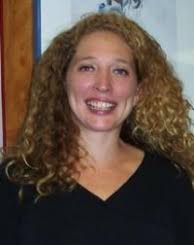Posted on 04/05/2018
WGS invites you to join us for our last panel in a year long series of Contemporary Feminisms: Indigienous Feminisms on Thursday, April 5, 2018 from 4pm to 6pm in the EUC, Maple Room.
 Mishuana Goeman, (Tonawanda Band of Seneca), UCLA
Mishuana Goeman, (Tonawanda Band of Seneca), UCLA
“Native Feminists Anticolonial Toolbox, The Digital Terrain and Working with Tribal Communities”
As I relate at the start of my first book, Mark My Words: Native Women Mapping Our Nations, my interest and understanding of embodied geographies began at a very young age as I moved back and forth from reservation to urban to rural spaces. It was the unspoken racialized and gendered knowledge of what these movements meant, or what I have recently termed Native mobilities and settler grammar of places, that ensured our tribal, community, and family survival albeit with losses enroute. The telling of stories about our travels and the witnessing of telling amongst Indigenous peoples along my varied paths led to an examination of geographic approaches to place at the intersections of Indigenous knowledge production. In this talk, I will weave this earlier work in to an examination of acknowledgements and process of working toward creating more anticolonial tools that combat colonial spatial violence. I ask the following: How do settler colonial structures generate our understandings of indigenous peoples and interactions in the everyday? How might we find a non-dominant form of expression of Indigenous mobilities that do not hold us in the settler logics of containment? In these last few years, I have realized that technology, with a mindfulness of the pros and cons, provide anti-colonial tools to present humanities and social science based work in concrete ways to the communities we work and live within.
Audra Simpson, Columbia University
“School was Sex: Critiques of Civilization in Indigenous Canada”
What kind of world is it that imagines time to stop? This piece asks not only in what world we imagine time to stop, but takes up the ways in which those that survived the time stoppage stand in critical relationship to dispossession and settler governance apprehend, analyze and act upon this project of affective governance. Here an oral and textual history of the notion of “reconciliation” is constructed and analyzed with recourse to Indigenous criticism of this affective project of repair.
Joanne Barker, Lenape (a citizen of the Delaware Tribe of Indians), San Francisco State University
“Confluence: Water as an Analytic of Indigenous Feminisms”
This entirely experimental paper intends an orientation of readers to critical Indigenous feminist politics through a theorizing of water as an analytic. To do so, I focus on two current moments of the solidification of Indigenous feminist politics in the United States and Canada. First, I focus on questions about theory and method. What informs and distinguishes the articulation of a critical Indigenous feminist politics with/from other feminisms? Second, I focus on the junctures of the Flint water crisis and the #nodapl action at Standing Rock. How did water bring the people of Flint and Standing Rock together? How does their coming together matter?
When: Apr 05, 4:00 pm - 6:00 pm
Location: EUC Maple Room, UNCG